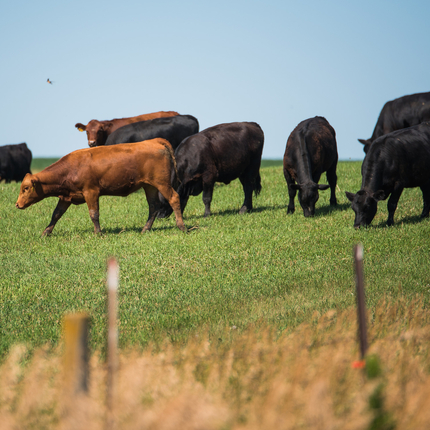Teresa Hoffman, policy communications associate, teresah@cfra.org, 402.687.2100, ext. 1012; Rhea Landholm, brand marketing & communications manager, rheal@cfra.org, 402.687.2100 ext 1025
LYONS, NEBRASKA – Ag leaders from across the state are applauding the introduction of a bill today in the Nebraska Legislature that would help local processors expand their capacity, create new markets for small livestock producers, and give consumers more options.
Legislative Bill 324, introduced by Sen. Tom Brandt, District 32, would create the Independent Processor Assistance Program, which provides a roadmap for increasing local processing capacity and expanding market access for small producers. It would also make it easier for the consumer to purchase individual packages of meat directly from the producer or processor and allow the producer and consumer more flexibility when deciding where their meat is processed.
Sen. Brandt said the bill would provide much needed support for producers, processors, and consumers impacted by the coronavirus pandemic.
“In Nebraska, there are limited marketing opportunities for small scale livestock producers,” Sen. Brandt said. “The herd share program was successfully implemented in Wyoming last year in response to the effects of COVID-19 for the benefit of producers and consumers. This legislation would enable Nebraska consumers to buy high-quality Nebraska meat. When grocery store shelves are empty, this is a great alternative.”
Johnathan Hladik, policy director for the Center for Rural Affairs, thanked Brandt for taking this important step in addressing disruptions to the state’s food supply caused by the pandemic.
“Outbreaks have impeded work at many regional packing plants. When these plants pause, large-scale beef and pork producers turn to local processors to fill the void,” he said. “This has created a debilitating bottleneck at every local meat locker in the state. They simply do not have the space or equipment to keep up with demand. This has left the family farms in our growing direct sales industry without a crucial partner.”
Al Juhnke, executive director of the Nebraska Pork Producers Association, is also appreciative of Brandt’s efforts.
“Our farmers are supportive of ways to enhance the capacity of our local meat processors to provide safe products to their community customers,” Juhnke said. “Sen. Brandt’s bill proposes a creative path to do just this.”
Local processors, like Mike Boell, owner of the Oakland Meat Processing Plant, play a fundamental role in a small livestock producer’s business plan. Producers sell their product directly to the consumer and view local processors as a trusted partner. Before this year, a typical producer scheduled locker dates 4 to 6 weeks in advance. Now, the wait time is 20 to 24 months. This means reservations must be made more than one year before the animal is even born.
“Like many local processors, we have seen a significant growth in demand for our services,” Boell said. “Right now, regulatory and financial barriers are making it difficult for businesses like ours to take full advantage of this opportunity. This bill is a step in the right direction and we think it deserves support from the Legislature.”
Al Davis, director of the Independent Cattlemen of Nebraska, said the bill is a winner for both consumers and producers.
“For producers, the bill opens a marketing opportunity to complete the pasture-to-plate chain which will give them the opportunity to retain a much larger share of the retail dollar,” he said. “For consumers, the bill permits them to purchase fresh, delicious Nebraska-raised beef often from people they know personally. In addition there is potential for economic development opportunities across Nebraska which wouldn't exist under existing statutory regulations.”
A hearing on the bill will be held by the Agriculture Committee.
# # #





